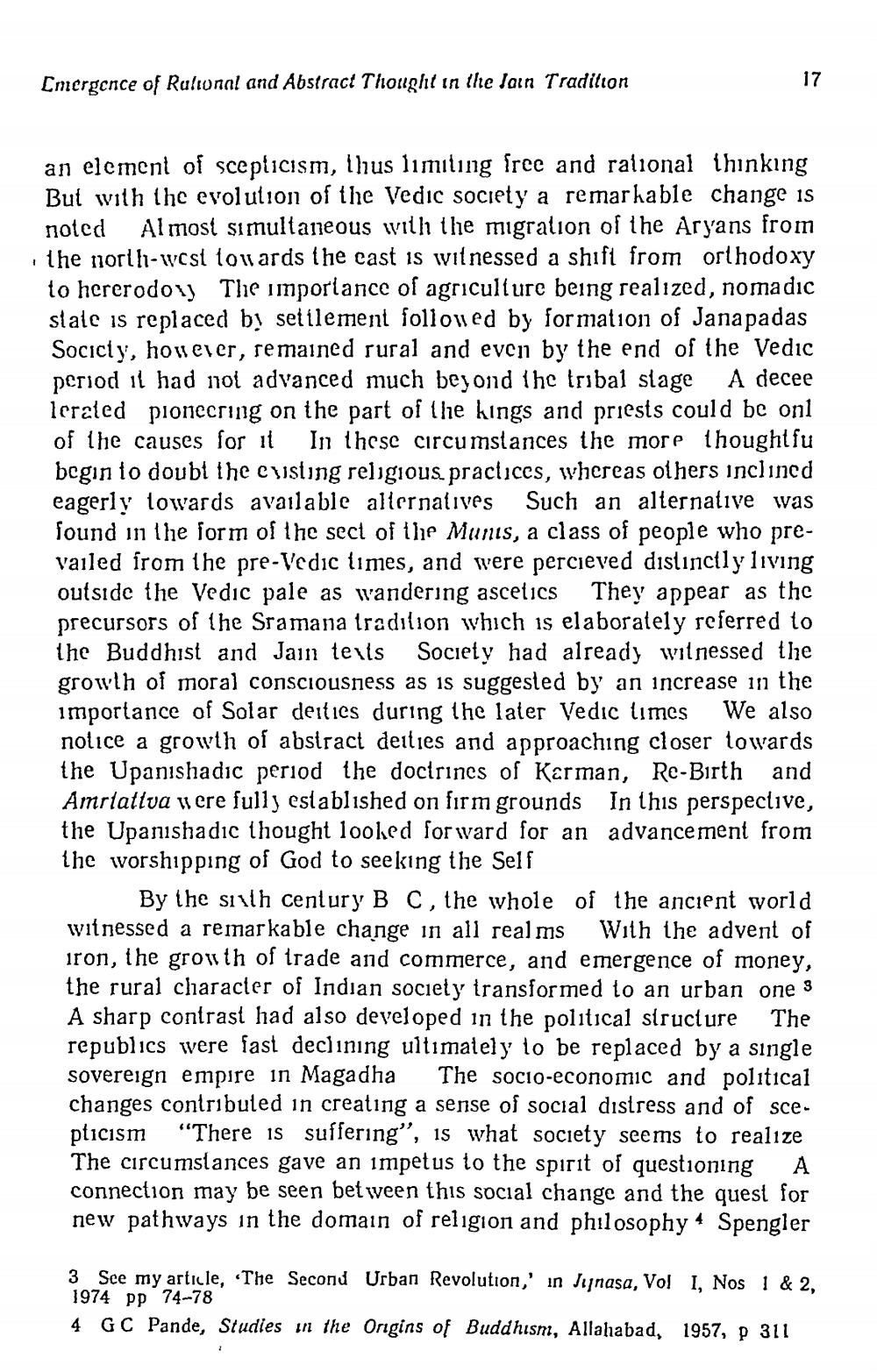________________
Cmergence of Rulonal and Abstract Thought in the Jain Tradition
17
an element of scepticism, llus limiting free and ralional thinking But with the evolution of the Vedic society a remarkable change is noted Almost simultaneous with the migration of the Aryans from the north-west towards the cast is witnessed a shift from orthodoxy to hererodou The importance of agriculture being realized, nomadic stale is replaced by settlement followed by formation of Janapadas Socicly, however, remained rural and even by the end of the Vedic period it had not advanced much beyond the tribal stage A decee lerated pioneering on the part of the kings and priests could be onl of the causes for it In these circumstances the more thoughtfu begin to doubt the cysting religious practices, whereas others inclined eagerly towards available alternatives Such an alternative was found in the form of the sect of the Munis, a class of people who prevailed from the pre-Vedic times, and were percieved distinctly living outside the Vedic pale as wandering ascetics They appear as the precursors of the Sramana tradition which is elaborately referred to the Buddhist and Jain texts Society had already witnessed the growth of moral consciousness as is suggested by an increase in the importance of Solar deities during the later Vedic times We also notice a growth of abstract deities and approaching closer towards the Upanishadic period the doctrines of Karman, Re-Birth and Amrlattva u ere fully established on firm grounds In this perspective, the Upanishadic thought looked forward for an advancement from the worshipping of God to seeking the Self
By the sixth century BC, the whole of the ancient world witnessed a remarkable change in all realms With the advent of iron, the grouth of trade and commerce, and emergence of money, the rural character of Indian society transformed to an urban one 3 A sharp contrast had also developed in the political structure The republics were fast declining ultimately to be replaced by a single sovereign empire in Magadha The socio-economic and political changes contributed in creating a sense of social distress and of scepticism "There is suffering”, is what society seems to realize The circumstances gave an impetus to the spirit of questioning A connection may be seen between this social change and the quest for new pathways in the domain of religion and philosophy 4 Spengler
3 Sce my article, The Second Urban Revolution,' in Junasa, Vol I, Nos 1 & 2, 1974 pp 74-78 4 GC Pande, Studies in the Origins of Buddhism, Allahabad, 1957, P 311




